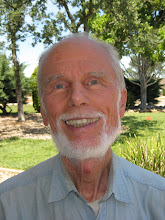The anti-clericalism of the French Revolution forced Catholic thinkers to recognize the distinction between state and society. The very existence of society as a complex entity of various social groups independent of the state and its government was called in question by the radical revolutions beginning with the French and continuing through the Bolshevik and subsequent revolutions including the Chinese, the Vietnamese, the Cuban and the Cambodian. The revolutionary regimes claimed the right to suppress or control all of the groups that make up a flourishing society including church, family, labor unions, academic faculties, athletic organizations, charitable organizations, simply everything.
In response to this, according to Russell Hittinger, Catholic thinkers saw from Genesis that God had created different kinds of entities. The purely physical powers and objects, animals with a kind of organic unity of each individual and then, marriage, a society of more than one person with a unity and structure of relationships suitable for its membership of husband, wife and children. Other groups within society had their chosen goals but constituted something similar in that they were a unity of persons seeking common goals and were natural to human societies.
As Hittinger puts it, the Catholics looked with favor on all such groups with legitimate purposes and saw them in a hierarchy in which the church was the highest in that its goal of relating to God was the highest purpose, followed by the state, whose goals are temporal but important and then society with its pluriform associations of family and other groups. These thinkers defended the legitimacy of society as against the state, which had no basis for suppressing or controlling its entities in pursuit of their legitimate goals.
Because of the anti-clericalism of the revolutions that swept Europe after 1789 and on into the 20th Century, Catholic thinkers opposed the revolution, often in the name of monarchy, the main political force available to oppose it. Because the American Revolution did not overturn church and society on the model of the French, Americans were slow to recognize the problem of utopian revolutions bent on perfecting human society and human beings, whatever the human cost. But Catholic thinkers did see that they were defending society in its multiform variety when they opposed these revolutions.
Abraham Kuyper's concept of sphere sovereignty, it seems to me, recognizes the same reality that society consists of many legitimate human institutions besides the government that are directly ordained by God and thus have a sphere of action independent of control by the state. I think that sphere sovereignty clarifies the reality without imposing a hierarchy. What the Catholics have seen best is that the revolutionary spirit abroad in the world is bent on totalitarian control of society in order to accomplish its goal of perfecting humanity and creating the earthly paradise. The state must be sovereign over all. Rousseau's idea of a General Will determined by a majority vote has been used to promote totalitarian democracy, but this bears no relationship to the popular sovereignty of the American Republic of our Founders.
Marxism-Leninism was explicit about its goals. But I believe that the spirit of the revolution animates the secular intelligentsia throughout Europe and America. Although Soviet Communism was turned back, the revolutionary spirit has triumphed in Europe and that is why the European Union is unwilling even to acknowledge its Chrsitian heritage. This is what the Culture War is about in America: the revolution. I believe that Del Tackett and the Truth Project get it. But it's not obvious to most Americans and so Christians are bound to differ about issues ranging from gun control to early childhood education.
Education, secularization and gun control are key areas where state control must be advanced in order to bring about the revolution by peaceful means. Christians should be wise in advancing Christian initiatives in education and in resisting secularization and gun control. Hate crimes laws are the leading edge of suppression of religious speech at the moment. But education is the key to long-term success. And well over 90% of American children are in government schools. That is the biggest practical problem.
Of course, the underlying problem is our failure to be the church. That is why I believe--contrary to current appearances perhaps--that our focus groups are the most important thing we are doing. This is where the church will come alive when God visits us.
Wednesday, February 25, 2009
Subscribe to:
Post Comments (Atom)

No comments:
Post a Comment